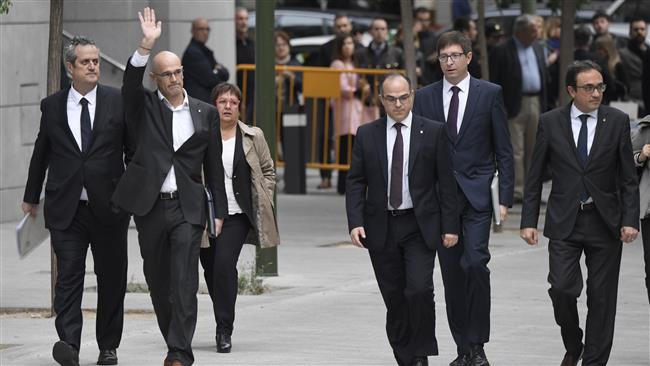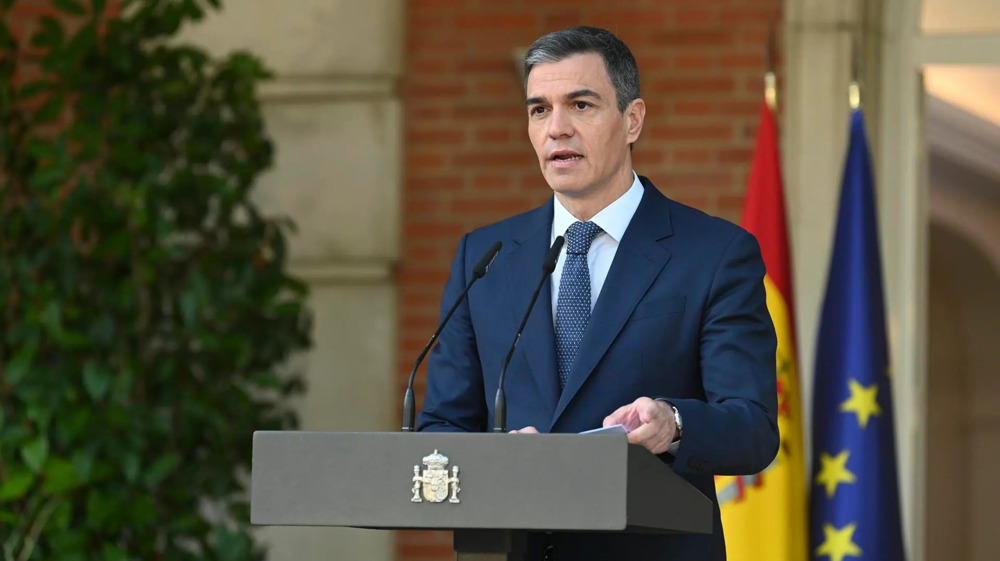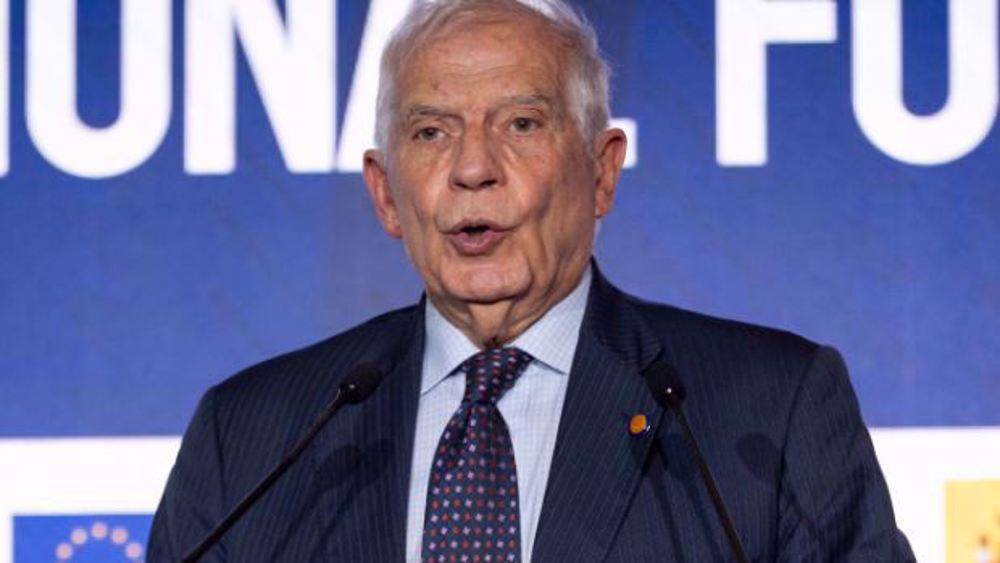Spanish prosecutors seek jail terms for eight former Catalan leaders
Former leaders of Catalonia’s now-defunct government face jail terms as the Spanish government seeks to assert its rule following a controversial declaration of independence in the northeastern region.
Prosecutors asked Spain’s National Court on Thursday that eight former members of Catalonia's government, which is now dismantled and has its leader in a self-imposed exile, be imprisoned until more investigation is conducted in relation to an independence drive in Catalonia.
The eight former officials appeared in the Madrid court on Thursday, two days after they were summoned by Spain’s Supreme Court.
The eight had been summoned along deposed Catalan leader Carles Puigdemont and five other ministers over charges of rebellion, sedition and embezzlement. Puigdemont, who is now in Belgium and has demanded special legal guarantees to return home, did not attend the hearing alongside four of his ministers.
Madrid has also summoned other former officials of Catalonia, including influential figures in the region’s parliament, over their contribution to the independence move.
Prosecutors said the court would free the ninth minister on Thursday if he could pay a bail of around 50,000 euros. The minister resigned before the Catalan parliament voted for independence.

Spanish newspaper, La Vanguardia, reported later on Thursday that a Spanish judge had issued a European arrest warrant for Catalan leader, Carles Puigdemont, and four members of his sacked cabinet, who are now in Belgium, after they failed to appear at a High Court hearing. However, Reuters reported that a spokeswoman for the High Court could not confirm the warrant had been issued.
The judge in the National Court has yet to decide on the jail requests that also would affect former Catalan vice-president Oriol Junqueras. Spanish law allows jail terms of up to 30 years if the former officials are convicted of the charges filed against them.
The political stand-off over Catalonia, the gravest to hit Spain since the return of democracy to the country in the late 1970s, was triggered by a referendum of independence in the region on October 1. Nearly half of Catalonia’s eligible voters turned up in the vote which Spain had called illegal. Catalonia’s government then built on the overwhelming yes vote and declared independence on October 27. That prompted Madrid to sack Puigdemont and his deputies and take over the control of the wealthy and economically-prosperous region.
Thousands staged a protest outside the presidential palace in Barcelona, the capital of Catalonia, on Thursday to show their support for the former leaders of the region and condemn their prosecution by Madrid.
UNRWA warns of humanitarian collapse in Gaza
'Hello my enemies': Lebanese journalist on Israeli threats and his resolve to continue
Outrage in France as MP proposes bill to ban criticism of Israel
VIDEO | The strategy of Hezbollah in war
Israeli military withdraws several brigades from southern Lebanon: Report
48-year-old Palestinian man serving 48 life terms completes 22 years in Israeli jails
From MKO to Tondar, how Germany became safe haven for anti-Iran terror groups
Hamas open to any proposal aiming to end Gaza war: Hamdan













 This makes it easy to access the Press TV website
This makes it easy to access the Press TV website